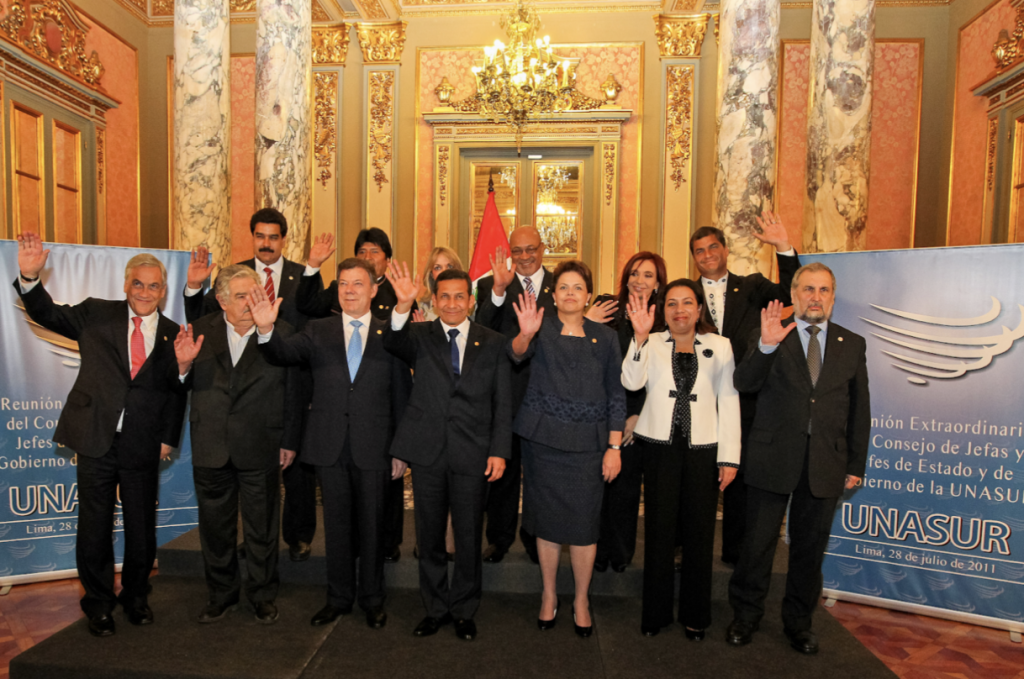

During Dilma Rousseff’s tenure (2011-16), Brazil’s foreign policy goals were largely a continuation of Lula’s. However, increased domestic troubles made international engagement less of a priority for Dilma. Dealing with a stagnant economy, corruption scandals, and political turmoil, Rousseff had to dedicate more attention to domestic matters. Thus, the level and scope of Brazil’s engagement in international organizations fell, and the budget of the Ministry of Foreign Relations was also slashed. Brazil continued to seek influence in international bodies and integration in South America, albeit less energetically than during Lula’s tenure. During the Obama administration (2009-16), which overlapped with Dilma’s for several years, while Brazil and the United States maintained friendly relations, the two countries had several small disagreements that prevented a meaningful deepening of the partnership. They disagreed over matters such as the handling of the 2008 crisis and the international response to Iran. They also had a rift over U.S. spying on Rouseff’s communications. At the same time, Brazil saw its soft power diminish as its domestic troubles mounted. Therefore, in 2016, at the time of Trump’s election and Dilma’s impeachment, it was not clear what the future of U.S.-Brazil relations would look like.
Readings:
David R. Mares and Harold A. Trinkunas, “Selling Brazil’s Rise: Brazilian Foreign Policy from Cardoso to Rouseff” | English
Peter Hakim, “The Future of US-Brazil Relations: Confrontation, Cooperation, or Detachment?” | English
Leituras:
Portuguese Equivalents:
Cristina Soreanu Pecequilo, “As Relações Bilaterais Brasil-Estados Unidos no Governo Dilma Rousseff, 2011-2014” | Português
Amado Luiz Cervo, Antônio Carlos Lessa, “O Declínio: Inserção Internacional do Brasil (2011-2014) | Português
Document:
Remarks by President Obama and President Rouseff of Brazil in Joint Press Conference, 2015 | Link



